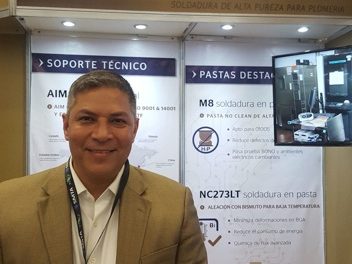Navigating Tax Compliance When Manufacturing in Mexico
There are numerous benefits of moving manufacturing to Mexico which have led to continuous economic growth and success for global companies across all industrial sectors. Mexico provides an established infrastructure and supply chain conducive to efficient productivity. The country delivers has a highly-skilled, cost-effective workforce, and close proximity to the U.S. market, among its other advantages.
However, with these benefits come certain stipulations, including tax compliance, that are necessary in order to operate. There are several tax rules to become familiar with to avoid fines and/or delays in production, and in some cases, reduce costs.
Tax Savings Through the IMMEX/Maquiladora Program
The IMMEX maquiladora program is unique to Mexico and is the first step in navigating tax compliance. By definition, a maquiladora in Mexico is a factory owned and operated by a foreign exporter.
With IMMEX program and VAT certification, U.S. and other foreign manufacturers are exempt from the 16% value-added tax (VAT) applied to temporarily imported goods, materials, and machinery used for manufacturing purposes. However, being approved for VAT certification is a complex and timely process. To avoid paying the standard tax rate and prevent operational delays, foreign manufacturers that choose to partner with a shelter company can use the certifications already in place and receive the exemption from day one.
Tariff-Free Incentives Per the USCMA
The IMMEX program is one of the biggest reasons foreign companies choose manufacturing in Mexico as part of their overall strategy. The savings from the VAT exemption is significant, though there are other tax laws to consider to keep costs low and compliance intact. Plus, it’s important to keep in mind VAT exemption does not equal duty-free trade.
However, there are advantages U.S. and other foreign manufacturers have when operating in Mexico due to the country’s numerous free trade agreements. Mexico has 13 free trade agreements with 50 other nations allowing tariff-free trade. The USMCA, in particular, permits preferential tariff benefits between North American countries in order to incentivize nearshore manufacturing versus outsourcing to China or other countries.
Specifically, the agreement’s Rules of Origin and Origin Procedures encourage manufacturers to source goods and materials within North America or face potential tariffs if the amount exceeds the outlined percentage. For example, 75% of auto content must be made in North America. Additionally, the Market Access chapter addresses duty-free treatment on remanufactured goods, as well as import and export licensing. This is an additional advantage that makes Mexico an ideal destination for the manufacturing industry, yet tracking compliance can become complicated.
Income Tax Laws in Mexico
In terms of income tax laws, manufacturing in Mexico is subject to transfer pricing regulations, including the arm’s-length principle and safe harbor pricing. The arm’s-length principle is in place to ensure multinational manufacturers allocate equal pricing among all entities. Per Mexico’s tax law, companies are required to show how they determine transfer prices to confirm if they are applied equitably for the transaction of goods.
Safe harbor pricing is an alternative to providing arm’s-length documentation. A 6.9% taxable income of the total asset value or 6.5% of operating costs is declared a safe harbor. This reportable percentage makes the manufacturer responsible for paying 30% income tax of whichever is amount higher. Failure to comply with either of these tax regulations can result in fines, legal action, and delayed production.
Furthermore, in Mexico, employers are required to share 10% of the company’s income, although amounts are subject to change depending on the current economic climate. A common misconception is profit sharing is similar to 401k contributions, but the former is legally mandated, while the latter is not. Also, since the shelter represents a maquiladora’s legal entity in Mexico, foreign manufacturers may be able to reduce their profit-sharing amount and may also be eligible to substitute profit-sharing taxes with employee bonuses or less costly alternatives.
Minimize Tax Risk and Liability with the Help of a Shelter Partner
Navigating tax laws in a foreign country requires dedicated experience and expertise in order to maintain compliance, keep up with changing regulations, and sustain a smoothly run operation. It’s also beneficial to ensure you’re receiving optimal tax advantages and minimizing costs wherever possible. IVEMSA alleviates the responsibilities of tax and payroll administration, leaving you to focus completely on production.
Sources:
https://www.trade.gov/country-commercial-guides/mexico-trade-agreements











